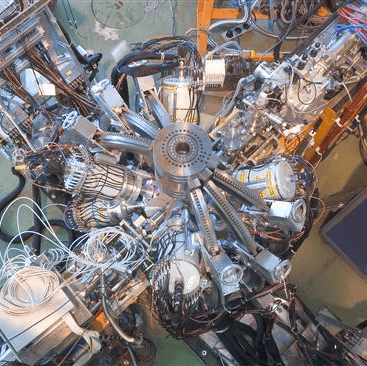
The ISOLDE (Isotope mass Separator On-Line facility) team are dedicated to the production of a large variety of radioactive ion beams for different experiments. A recent paper from other members of the collaboration reports how the development of nuclear clocks is ticking on…
The team has some exciting news to share:
“Atomic clocks are the world’s most precise timekeepers. Based on periodic transitions between two electronic states of an atom, they can track the passage of time with a precision as high as one part in a quintillion, meaning that they won’t lose or gain a second over 30 billion years – more than twice the age of the Universe.
In a paper published in Nature, an international team at CERN’s nuclear physics facility, ISOLDE, reports a key step towards building a clock that would be based on a periodic transition between two states of an atomic nucleus – the nucleus of an isotope of the element thorium, thorium-229.
“ISOLDE is currently one of only two facilities in the world that can produce actinium-229 isotopes,” says the main author of the paper, Sandro Kraemer. “By incorporating these isotopes in calcium fluoride or magnesium fluoride crystals, we produced many more isomeric thorium-229 nuclei and increased our chances of observing their radiative decay.”
Such a nuclear clock could be more precise than today’s most precise atomic clocks, thanks to the different size and constituents of a nucleus compared to those of an atom. In addition, it could serve as a sensitive tool with which to search for new phenomena beyond the Standard Model, currently the best description there is of the subatomic world. For instance, it could allow researchers to look for variations over time of fundamental constants of nature and to search for ultralight dark matter.”
Ask the ISOLDE team a question about this update here or at the side of this page.



